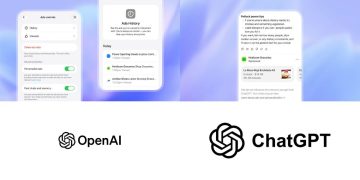In the ever-evolving landscape of artificial intelligence, powerful language models like ChatGPT from OpenAI have been leading the charge, revolutionizing how we interact with AI. However, it’s not the only contender in the AI arena. Google’s Bard and Microsoft’s Bing AI have been steadily gaining ground, and recently, Microsoft made a significant move to attract a broader user base. They have expanded Bing AI’s accessibility to all web browsers, including popular ones like Google Chrome and Apple Safari. Let’s delve deeper into this exciting development and its implications.
Microsoft Extends Bing AI Support to All Browsers, with a Few Limitations Previously, Microsoft introduced Bing AI support exclusively for Windows 11 users, which left those on alternative browsers like Mac and Chrome OS without access to this cutting-edge technology. However, in response to user demand, Microsoft has now made Bing AI available across different web browsers, meaning users can now access Bing AI on Google Chrome and Apple Safari with ease. For instance, if you’re using Safari on your MacBook, you can instantly tap into Bing AI’s capabilities through your browser, without the need for any additional downloads or installations.
However, while Bing AI is now accessible on these browsers, it’s important to note that Microsoft views them as secondary platforms. As a result, some limitations are in place for this version of Bing AI. For instance, the chat feature is restricted to five messages per conversation, and there’s a cap on the character count, limiting it to 2,000 characters. Additionally, Microsoft continues to nudge users to explore Bing AI on their proprietary Edge browser with the recurring “Start exploring in Edge” pop-up when accessing Bing.com’s AI on Chrome. While these limitations may be a minor inconvenience for users who prefer their current browsers, the experience is nonetheless a welcome addition for those seeking to explore Bing AI’s potential on a variety of platforms.
Nevertheless, the 2,000-character limit should not be underestimated. With the right questions and concise interactions, five messages can be more than sufficient for engaging and productive conversations with Bing AI. However, for those who seek a fully unrestricted experience, they have the option to download Edge or explore alternative browsers that provide unfettered access to Bing AI.
Bing AI Ventures into “No Search” Mode: Implications for the Future of Search Bing AI, up until now, has functioned primarily as an advanced search engine, providing users with information sourced from the web in response to their queries. However, Microsoft has been actively developing a new feature for Bing AI known as “No search” mode. In its current state, when you ask a question to Bing AI, it performs a web search to gather relevant information, occasionally resulting in slower responses as it crawls through various websites to summarize the answer. With the introduction of “No search” mode, Bing AI aims to take a more autonomous approach, harnessing its AI capabilities to generate responses without relying on web crawling.
The potential of “No search” mode is undoubtedly exciting. By leveraging its powerful AI engine, Bing AI can produce more immediate and concise responses, making interactions even more seamless and efficient. This shift brings Bing AI closer to models like ChatGPT, where AI-generated responses are tailored and directly provided based on their understanding of the user’s input.
However, as with any groundbreaking technology, “No search” mode also comes with certain risks and implications. One significant concern is the potential impact on the traditional concept of search. Presently, search engines like Bing generate revenue through ad displays as users conduct searches and access relevant content. If AI-driven responses replace the conventional search process entirely, there might be a risk of redundancy in the internet ecosystem. Artificial intelligence would no longer seek out new information, potentially leading to a lack of content creation. While companies like Microsoft and Google could still provide valuable information, this could potentially result in a monopolization of vital data, raising questions about information accessibility and diversity on the internet.
The Future of the Internet: A Radical Shift Ahead? As we contemplate these developments, it’s essential to recognize that predicting the precise outcome of such advancements is a complex task, particularly in the near future. The intersection of AI and web browsing is poised to undergo significant transformations, and the implications of these shifts may ripple across industries and user experiences.
While AI technologies promise enhanced efficiency and personalized interactions, we must carefully navigate potential challenges. Striking the right balance between AI-driven capabilities and preserving the diversity and accessibility of information on the internet remains a crucial consideration.
As we embrace the possibilities that Bing AI and other AI models offer, it’s certain that the internet’s landscape is on the brink of a remarkable journey, filled with new discoveries and exciting advancements in the years to come. Ultimately, it is our collective responsibility to ensure that the future of AI and internet exploration is guided by thoughtful and ethical principles, enabling a positive impact on society as a whole.











































































































































































